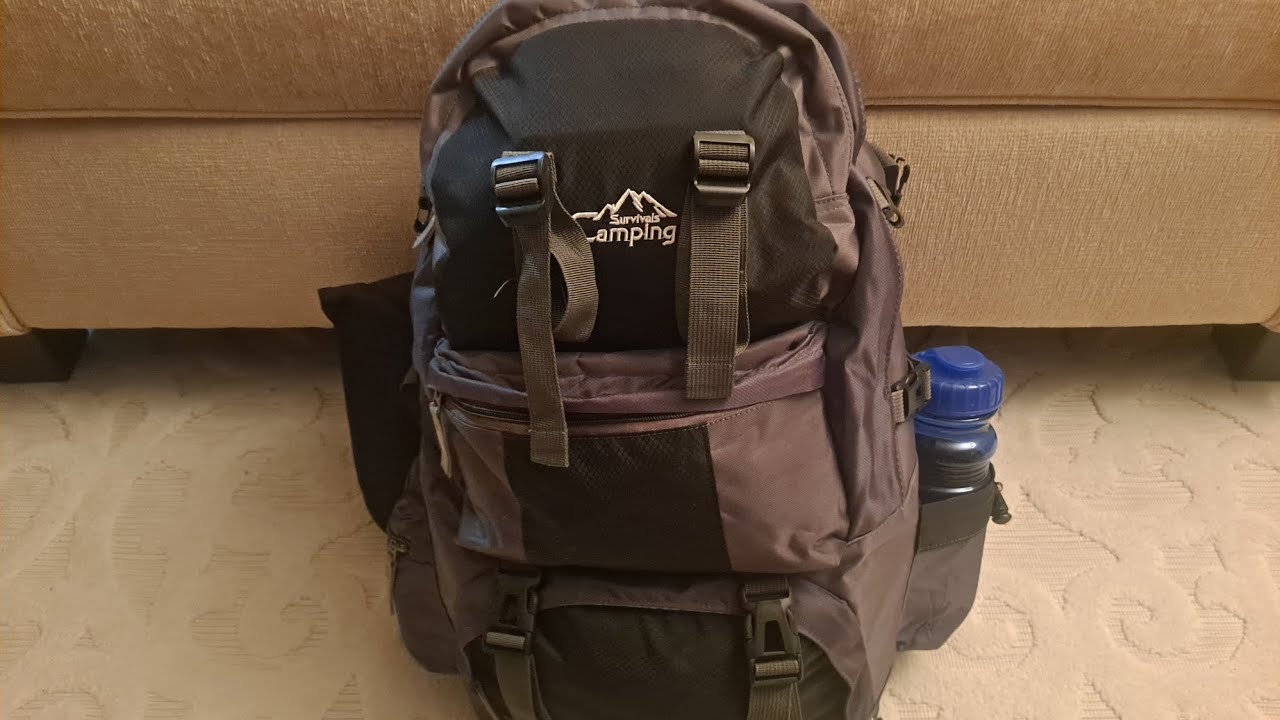Womens Preparedness
Protecting Your Privacy: Essential Tips for Women Online

Protecting Your Privacy: Essential Tips for Women Online
Hello, ladies! Welcome to a comprehensive guide on how to safeguard your privacy and stay safe while navigating the vast world of the internet. In this digital age, it’s more important than ever to prioritize your online security and take proactive steps to protect yourself from potential threats. As an expert in women’s self-defense and personal protection, I am here to equip you with essential tips and strategies to ensure your privacy remains intact.
First and foremost, let’s talk about the importance of being cautious with the information you share online. Whether you’re active on social media platforms, shopping online, or simply browsing the web, it’s crucial to be mindful of the personal details you disclose. Avoid sharing sensitive information such as your home address, phone number, or financial details on public forums or suspicious websites. Always double-check the privacy settings on your social media accounts to control who can view your posts and personal information.
It’s also vital to use strong and unique passwords for all your online accounts. Avoid using easily guessable passwords such as “123456” or “password.” Instead, opt for complex combinations of letters, numbers, and special characters. Consider using a reputable password manager to securely store and manage your passwords. Additionally, enable two-factor authentication whenever possible for an extra layer of security.
Furthermore, be cautious of phishing attempts and suspicious emails. Cybercriminals often use fake emails or websites to trick users into revealing sensitive information. Always verify the legitimacy of emails from unknown senders before clicking on any links or downloading attachments. Keep an eye out for any spelling errors or unusual requests that may indicate a phishing scam.
When it comes to browsing the web, consider using a virtual private network (VPN) to encrypt your internet connection and protect your online activities from prying eyes. VPNs are an effective tool for maintaining your privacy and security, especially when using public Wi-Fi networks in cafes, airports, or libraries. Additionally, regularly update your devices and software to patch any potential security vulnerabilities and protect yourself from malware or cyber attacks.
Lastly, stay informed and educated about the latest online threats and privacy concerns. Follow reputable cybersecurity experts and stay updated on best practices for online safety. By staying vigilant and proactive in safeguarding your privacy, you can navigate the digital world with confidence and peace of mind.
In conclusion, protecting your privacy online is an essential aspect of maintaining your personal security and well-being. By implementing these essential tips and strategies, you can empower yourself to navigate the internet safely and securely. Remember, your privacy is valuable, so take the necessary steps to protect it. Stay safe, ladies!
Womens Preparedness
The Importance of Preparedness for Adolescent Girls: Building Resilience and Confidence

The Importance of Preparedness for Adolescent Girls: Building Resilience and Confidence
Hello, beautiful souls! I’m Jade Tripp, and today we’re diving into an essential topic that resonates deeply with me: the importance of preparedness for adolescent girls. Becoming empowered through self-defense, safety awareness, and general preparedness can significantly impact a young woman’s confidence, resilience, and overall well-being.
Why Preparedness Matters
Adolescence is a critical period of development filled with new experiences, challenges, and sometimes, unexpected situations. Whether it’s exploring new social dynamics or venturing into unfamiliar environments, having the skills and mindset to handle these experiences is invaluable. Preparedness is not just about averting danger; it’s about equipping our girls with the tools they need to feel confident in their abilities to handle various situations.
Building Resilience
Resilience is the ability to bounce back from adversity. For adolescent girls, creating a resilient mindset can pave the way for future successes and personal endeavors. Preparedness promotes resilience by teaching them problem-solving skills, decision-making abilities, and stress management techniques.
Real-life Example: Malala Yousafzai
Take the inspiring example of Malala Yousafzai, who, at just 15 years old, stood up against the Taliban in Pakistan to advocate for girls’ education. Her preparation came from her fierce commitment to her beliefs and the knowledge that she could, and would, defend her right to an education. Even after facing extreme adversity, her fierce resilience has illuminated a path for countless young women throughout the world.
Self-Defense Skills
Teaching self-defense to adolescent girls is crucial. It’s not just about physical prowess; it’s about cultivating an awareness of one’s surroundings and the confidence to act.
Practical Steps to Develop Self-Defense Skills:
-
Enroll in Classes: Many communities offer self-defense classes tailored for younger individuals. Look for programs that teach techniques like Krav Maga, Brazilian Jiu-Jitsu, or even basic martial arts. Find a local class through organizations like the Women’s Self-Defense Institute.
-
Practice Situational Awareness: Teach girls to be aware of their surroundings. Simple practices like noting exits when entering a building or being mindful of who’s around them can make a significant difference.
- Identify Support Systems: Encourage girls to find and establish relationships with trustworthy adults in their lives. Knowing who to turn to in a crisis can bolster their confidence.
Building Confidence
Preparedness fosters confidence. When girls know they can protect themselves and handle unexpected situations, they naturally develop a stronger sense of self. Confidence can spill into various aspects of their lives, from social interactions to academic pursuits.
Real-Life Example: Amanda Todd
Amanda Todd’s story reminds us of the importance of digital awareness. After facing bullying and harassment online, Amanda showcased resilience through her YouTube video, raising awareness about the harsh realities of cyberbullying. Her tragic story serves as a reminder to equip our girls with the knowledge and skills to stand against such adversity.
The Essential Tools for Preparedness
-
Emergency Plans: Encourage girls to have a plan in place for various scenarios—whether it’s a minor situation like losing a phone or a serious one like an emergency during travel. Using tools like the FEMA app can help prepare them for natural disasters with real-time alerts and emergency kits.
-
Talk Programming and Social Media Safety: Incorporate discussions about social media engagement, understanding privacy settings, and recognizing online threats. Groups like the Cyberbullying Research Center provide resources to educate parents and teens about online presence and boundaries.
- Fostering Communication: Establish open lines of communication where girls can express their concerns or experiences without judgment. Supporting them in navigating relationships, whether with friends or potential partners, is essential for their emotional health.
Building a Supportive Community
Creating a supportive community is fundamental to fostering preparedness. Encourage girls to connect with peers who share their interests in personal safety, activism, or physical fitness. Building friendships around shared goals will empower them to share resources and skills.
Conclusion
Preparation might seem like an intimidating concept at first, but it really is about building a toolkit of practical skills and knowledge that can transform how adolescent girls approach life’s challenges. By promoting resilience, confidence, and self-defense skills, we are equipping them not just to survive but to thrive.
Remember, ladies: Preparedness is a journey, not a destination. Let’s nurture the next generation of empowered women together, so they can face the world with courage, resilience, and confidence. So go ahead, embrace the power of preparedness—because knowledge is your best ally!
Stay strong, stay prepared! ✨
With warmth,
Jade Tripp
Womens Preparedness
BUG OUT BAG FOR WOMEN | EVACUATION | PREPAREDNESS | LONG TERM GOT TO GO BAG

Thank you for watching my video. Please Subscribe Like Share to my channel https://youtu.be/zuABiko5y40 …
source
Womens Preparedness
How Multitasking Can Help or Hinder Emergency Response

Hello, fabulous women! It’s Jade Tripp here, and today we’re diving into a topic that can undoubtedly make a difference in how we respond to emergencies—multitasking. As women, we often pride ourselves on our ability to juggle various responsibilities simultaneously. Whether it’s managing work deadlines while planning our kids’ schedules or organizing a community event, multitasking has become second nature for us. However, when it comes to emergency situations, this skill can either empower us or lead us astray.
The Double-Edged Sword of Multitasking
When you think of multitasking, you might think of being efficient and productive. Yet, in high-stress situations, our brains can become overloaded, making it challenging to focus on the most critical tasks. Let’s break this down into both the advantages and drawbacks of multitasking when it truly matters.
The Benefits of Multitasking
-
Quick Decision Making: In emergencies, time is of the essence. Girls, how many of us have been in a situation where we had to make rapid decisions? For example, consider the case of a woman named Sarah, who was at a grocery store when a sudden fire broke out. While most people stood frozen, she quickly assessed her surroundings, located her children, and ushered them towards the exit all while alerting others nearby. Her ability to multitask saw her through a critical moment.
-
Resourceful Thinking: Multitasking enables us to draw from various skills simultaneously. Just think about preparing your family for a camping trip—setting up tents, cooking, and keeping the kids entertained can require juggling many things. In emergencies, such as a natural disaster where you might need to help a neighbor while tending to your family, this resourcefulness can save lives.
- Enhanced Situational Awareness: Managing multiple tasks can heighten awareness. For instance, during an earthquake like the one that hit Napa Valley in 2014, women like me used multitasking to secure themselves, help others, and even account for pets. Training ourselves to multitask within safe environments can prepare us for real emergencies.
The Downsides of Multitasking
Despite its benefits, multitasking can also hinder our response in critical moments. Here are a few reasons why:
-
Cognitive Overload: When we attempt to do too much at once, our brains can become overwhelmed. This can lead to mistakes. For example, let’s take the story of Lily, who was making dinner while chatting on the phone when she heard a loud crash in her living room. In the chaotic rush to assess the situation, she accidentally knocked over a pot of hot water, causing a burn. Focusing on one task at a time—like ensuring her children were safe first—might have prevented the injury.
-
Compromised Focus: Our cognitive resources are finite, especially under stress. During emergencies, people sometimes lose focus and miss critical cues. Remember the freezing of the bystanders during an incident at a public park? Their attention was split, and the moments of hesitation that followed could have led to different outcomes had they acted decisively.
- Neglected Priorities: It can be easy to get caught up in less crucial tasks while ignoring what truly matters. In emergencies, we need to prioritize our safety above all. The tragic case of a mother in a bullying incident comes to mind—she was so busy filming the altercation on her phone she neglected to intervene, resulting in harmful consequences.
Finding the Right Balance
So how can we strike a balance in our multitasking abilities while remaining effective in emergency situations? Here are some practical tips that can make a world of difference:
-
Prioritize Tasks: Always remember: safety first. In case of emergencies, assess the situation quickly. Identify the immediate threats and act accordingly. Teach yourself to prioritize by practicing scenarios that might arise.
-
Practice, Practice, Practice: The more training we have, the more instinctive our responses will become. Participate in personal safety classes or emergency drills. Organizations like the American Red Cross offer courses in first aid, CPR, and emergency preparedness that can help you react faster and more efficiently.
-
Limit Distractions: When you hear an alarm or a loud noise, resist the urge to multitask. Focus on what’s essential—your well-being and that of others. Think of Jessica, a teacher who, during a lockdown drill, removed distractions and kept her students focused on safety—her calmness in prioritizing over multitasking led to reduced anxiety.
- Mindfulness Techniques: Engage in mindfulness practices to improve focus. Breathing exercises and grounding techniques can preserve your mental strength during tense moments.
Final Thoughts
Ladies, multitasking is an incredible skill we have honed, and while it can lead to efficiently managing everyday life, we must adapt our approach in emergencies. By understanding its strengths and limitations, we can cultivate a more effective and empathetic response to critical situations.
Let’s equip ourselves with the mindset and the knowledge to act in times of crisis. Remember, preparation is key, and embracing our roles as powerful, multitasking women doesn’t just mean juggling everyday tasks—it means being ready to protect ourselves and our communities, no matter the situation!
Stay strong and stay safe! 💪🌟
-

 Womens Self Defense11 months ago
Womens Self Defense11 months agoNew Legislation Empowers Women to Defend Themselves
-

 Self Defense News1 year ago
Self Defense News1 year agoShe was convicted of killing her abusive boyfriend. Now a Maple Grove woman is home awaiting a new trial.
-

 Self Defense News1 year ago
Self Defense News1 year agoSelf-Defense for All: The new Gracie Jiu-Jitsu Pasadena is for everyone | Online Features
-

 Womens Self Defense1 year ago
Womens Self Defense1 year agoTop 5 Self-Defense Techniques Every Woman Should Know
-

 Womens Self Defense7 months ago
Womens Self Defense7 months agoUnderstanding State-by-State Variation in Self Defense Laws
-

 Womens Fitness1 year ago
Womens Fitness1 year agoXtreme Bodyweight HIIT (Lots of Jumping!) | Joanna Soh (Fio Series)
-

 Womens Preparedness1 year ago
Womens Preparedness1 year ago10 essential skills for surviving in the great outdoors
-

 Womens Preparedness1 year ago
Womens Preparedness1 year agoEmpower Yourself: A Guide to Female Survival Planning

